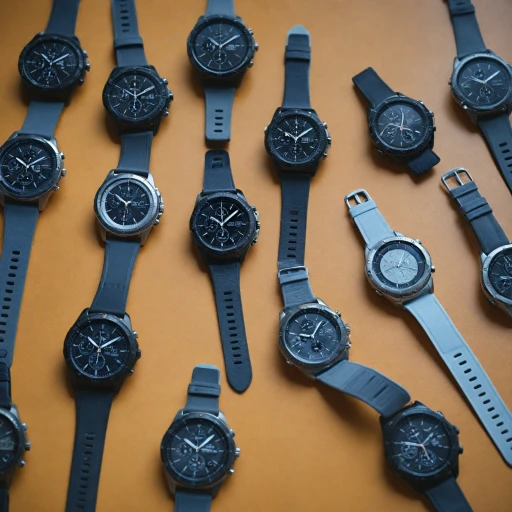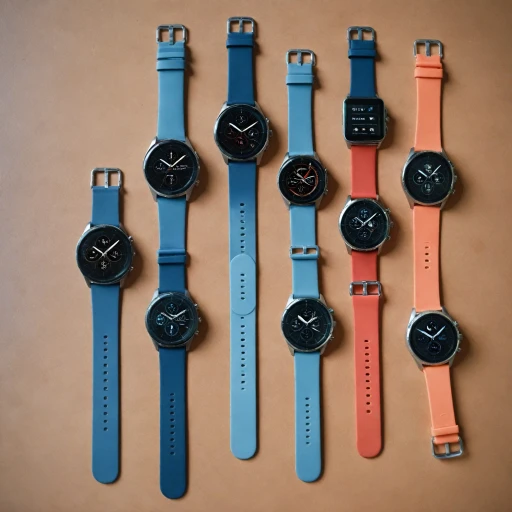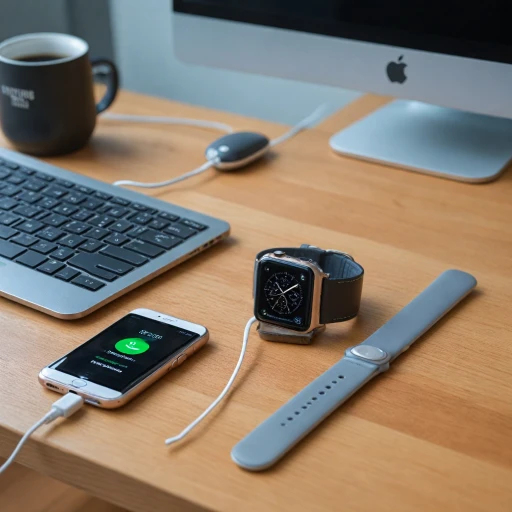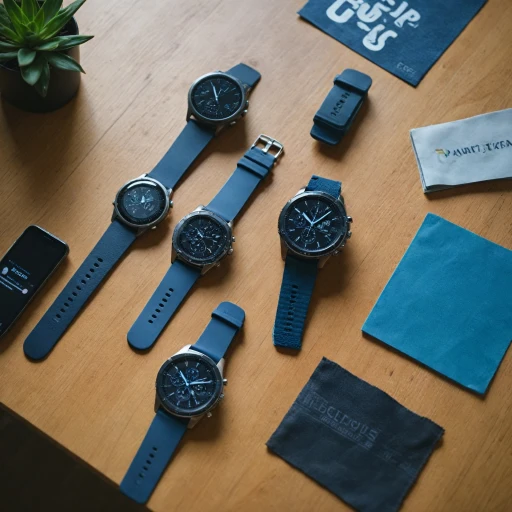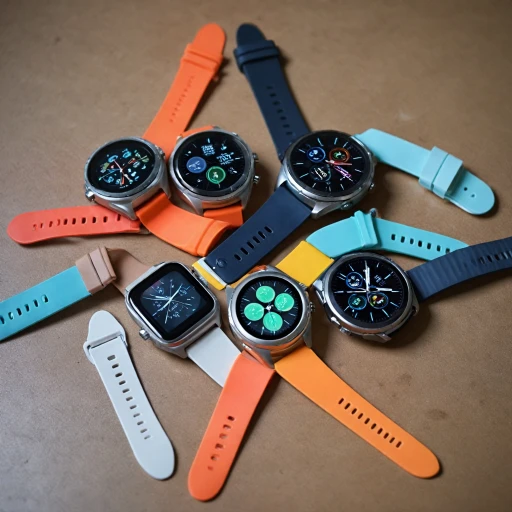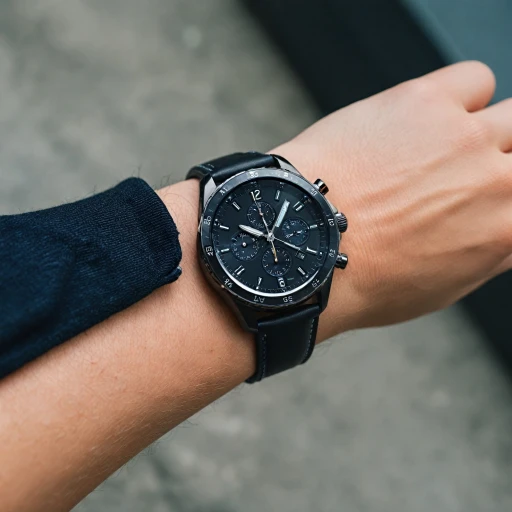
Understanding the Evolution of Fitness Bands
The journey of fitness bands is an intriguing testament to the intersection of technology and personal health. Initially, these devices began as straightforward step counters, but they have transformed into sophisticated gadgets known as fitness trackers, capable of monitoring a myriad of health metrics. Over the years, fitness trackers have evolved from their humble beginnings to offer a comprehensive array of features that cater to various health and wellness goals.
The Surge of Fitness Trackers
The demand for accurate health metrics has led to innovations that now encompass heart rate monitoring, sleep tracking, and even GPS capabilities. Today, brands like Fitbit Charge, Garmin, and Oura Ring are at the forefront, offering a wide range of products tailored to different fitness needs and lifestyle preferences. Each new version tends to improve on battery life, tracking precision, and ease of use, making them indispensable for health enthusiasts.
Smartwatch Integration
As our reliance on technology grows, the integration of fitness trackers with smartwatches presents new possibilities. Combining the capabilities of a fitness band with the multipurpose nature of devices like the Apple Watch or Samsung Galaxy, these hybrids enable users to enjoy the benefits of comprehensive health insights alongside smartphone connectivity and a slew of apps. Understanding these integrations is essential for selecting a device that fits perfectly with your active lifestyle. For more insights, explore our guide to choosing the ideal fitness watch.
Advanced Health Tracking Features
With enhancements in technology, modern fitness bands now offer advanced health tracking that goes beyond traditional metrics. Features like blood oxygen levels, built-in GPS for precise location tracking, and even smartwatch payment capabilities are now available. These advancements are driven by both consumer demand and continuous improvements in wearable technology.
The journey from basic fitness trackers to feature-rich devices reflects ongoing innovation aimed at enhancing health fitness and convenience. As we delve deeper into the world of fitness bands, understanding their evolution helps in appreciating the varied functionalities that cater to everyday users and serious athletes alike.
Key Features to Look for in a Fitness Band
Identifying Must-Have Features for Fitness Enthusiasts
Whether you're a seasoned athlete or just embarking on your fitness journey, choosing the best fitness tracker involves understanding the core features that can enhance your active lifestyle. With a myriad of options available, it becomes essential to focus on features that meet your unique fitness goals.- Heart Rate Monitoring: This feature is crucial for tracking your cardiovascular health and ensuring you're training within the optimal heart rate zones. Many fitness trackers, like the Garmin Forerunner, provide real-time heart rate monitoring.
- GPS Functionality: For those who enjoy outdoor activities like running or cycling, built-in GPS is indispensable. It allows accurate tracking of your routes and distances without the need for a smartphone.
- Sleep Tracking: Understanding your sleep patterns is vital for overall health and recovery. Fitness trackers with sleep tracking features offer insights into the quality and duration of your sleep, helping to optimize your rest.
- Battery Life: Long battery life ensures that your fitness tracker can keep up with your active lifestyle. Battery life can range from a few days to several weeks, depending on the model and features used.
- Water Resistance: If your activities include swimming or water-based workouts, ensure your fitness band is water-resistant, allowing seamless tracking without worries about damage.
- Display and Interface: A clear, easy-to-read display enhances user experience, making it simple to navigate through various tracking features. Consider the size and type of display that suits your preferences.
- Integration with Apps: The ability to sync with fitness apps provides a comprehensive view of your health metrics. Some of the best fitness trackers on the market, such as the Fitbit Charge and Apple Watch, integrate seamlessly with popular apps to offer detailed insights.
Comparing Top Rated Fitness Bands
Comparing the Best Fitness Band Options
When delving into the world of fitness trackers, it becomes apparent that several models stand out due to their impressive features and user ratings. Here, we breakdown some of the top contenders, assessing their strengths and potential drawbacks to help you make an informed decision.- Garmin Fitness Trackers: Known for their durability and precise tracking capabilities, Garmin offers models like the Garmin Forerunner which excel in GPS tracking and heart rate monitoring. The battery life is noteworthy, often lasting multiple days without a recharge, making it a reliable option for long events.
- Fitbit Charge Series: A front-runner in the fitness world, the Fitbit Charge line is celebrated for its comprehensive sleep tracking and heart rate monitoring. The app interface is user-friendly, offering insights into health metrics that can aid in achieving fitness goals. With water resistance as an added feature, it caters well to swimmers.
- Apple Watch Series: For those seeking a more integrated smartwatch experience, the Apple Watch provides seamless synchronization with other Apple products. Its fitness tracking abilities are enhanced by blood oxygen monitoring and various workout modes. However, its battery life usually requires daily charging.
- Oura Ring: A different take on fitness tracking, the Oura Ring focuses extensively on sleep and recovery metrics. Its discreet design makes it less intrusive than traditional wrist-based trackers.
- Samsung Galaxy Watch: Known for its vivid display and robust tracking features, the Galaxy Watch is equipped with built GPS and comprehensive fitness apps. While the battery life varies by usage, it generally holds up for day-to-day activities comfortably.
The Role of Smartwatch Integration
The Integration of Smartwatch Capabilities with Fitness Bands
In recent years, the line between fitness bands and smartwatches has become increasingly blurred. As fitness enthusiasts look for more comprehensive health tracking solutions, the integration of smartwatch features into fitness bands has become a pivotal factor. For those who value the versatility of a smartwatch combined with the comprehensive health monitoring of a fitness band, here are some key aspects to consider:- Heart Rate Monitoring: Fitness bands now feature advanced heart rate tracking, similar to what is found in smartwatches like the Apple Watch or the Samsung Galaxy Watch. Many bands, such as those from Fitbit and Garmin, consistently provide real-time heart rate data, ensuring users can monitor their cardiovascular health closely.
- GPS and Activity Tracking: Built-in GPS is increasingly common in higher-end fitness trackers, making them ideal for outdoor athletes who require precise distance and speed metrics. The Garmin Forerunner, for example, is renowned for its detailed GPS tracking capabilities that avid runners and cyclists appreciate.
- Battery Life: Unlike many smartwatches that require daily charging, fitness bands usually offer extended battery life, sometimes lasting several days on a single charge. This is a significant advantage for users who engage in multi-day activities or trips without easy access to charging facilities.
- Integration with Apps: Fitness bands that double as smartwatches often support a suite of apps, allowing users to track fitness, sleep, and even blood oxygen levels. The ability to sync with health-focused apps enhances the overall user experience, providing a holistic view of one's fitness journey.
- Display and Design: Modern fitness trackers now boast high-resolution displays that rival smartwatches, offering crystal-clear views of notifications and fitness stats. The design of devices such as the Fitbit Charge blends functionality with style, making them suitable for both gym sessions and daily wear.
User Reviews and Real-World Performance
Gauging Users' Real-Life Experiences with Fitness Bands
In the quest to find the ideal fitness band, user reviews and real-world performance feedback play a crucial role. Users often highlight how well these devices align with their fitness goals, providing insights that go beyond technical specifications. Let's dive into common themes highlighted in user feedback.
- Heart Rate and Health Tracking: Many users prioritize accurate heart rate monitoring and health metrics. Devices like the Garmin Forerunner and Oura Ring are often praised for their comprehensive health tracking capabilities, including blood oxygen levels and sleep monitoring.
- Battery Life and Durability: A fitness tracker's battery life is a critical factor, as frequent charging can disrupt tracking continuity. Users frequently commend the Fitbit Charge and Samsung Galaxy Watch for their impressive battery life, lasting multiple days on a single charge.
- Water Resistance and Build Quality: For those with an active lifestyle, water resistance is a must-have feature. Fitness trackers from brands like Garmin and Apple are celebrated for their durability and water-resistant designs, ensuring reliable performance in various conditions.
- GPS and Connectivity: Built-in GPS and seamless app integration enhance the overall user experience. The integration of GPS in fitness bands like the Apple Watch and devices offering continuous connectivity with smartphones often receive high praise.
- Display and Interface: The readability and usability of the display are frequently highlighted in reviews. Top choices like the Galaxy Watch and Garmin models are noted for their easy-to-navigate interfaces, making fitness tracking more intuitive.
Users' collective feedback reveals that finding the best fitness tracker depends on individual priorities, be it health tracking precision, battery longevity, or integration with existing smart devices. It's clear that user reviews are integral in assessing the effectiveness of these advanced fitness tools in daily life.
Choosing the Right Fitness Band for Your Needs
Assess Your Fitness Goals and Lifestyle
Choosing the right fitness band involves considering your specific fitness goals and lifestyle needs. Are you focused on tracking workouts, monitoring heart rate, or seeking out advanced sleep monitoring? Evaluate what features will most enhance your health and fitness journey.- Fitness Tracking Features: Prioritize fitness trackers that offer personalized health insights such as heart rate monitoring, GPS functionality, and advanced sleep tracking. Brands like Garmin Forerunner and Apple Watch provide robust options for tracking a variety of activities with precision.
- Technology and Integration: Assess if you require smartwatch integration capability. Some fitness bands can seamlessly sync with fitness apps and other devices, offering comprehensive health management. Look for products with seamless integration for a more unified experience.
Consider Durability and Design
The design and durability of a fitness tracker can greatly influence your user experience. Opt for a tracker that suits your daily wear needs and offers features like water resistance if you enjoy aquatic activities.- Battery Life Considerations: Battery life is crucial depending on your activity level. Devices like the Fitbit Charge offer extended battery life that supports multi-day tracking without frequent recharging.
- Comfort and Style: Make sure the band is comfortable and fits snugly as a fitness watch should be a natural extension of your daily wear. The aesthetic appeal also matters if you're planning to wear it all day.
Weighing User Reviews and Reliability
Take time to read user reviews and understand real-world performance. This can offer valuable insights into what it’s like to use the fitness band consistently. For instance, you might find feedback on how the battery life actually holds up or how accurate the sleep tracking is in everyday use.- Brand Reputation and Support: Consider purchasing from reputable brands with solid customer support. This can ensure better experiences with troubleshooting or when seeking help for issues.





